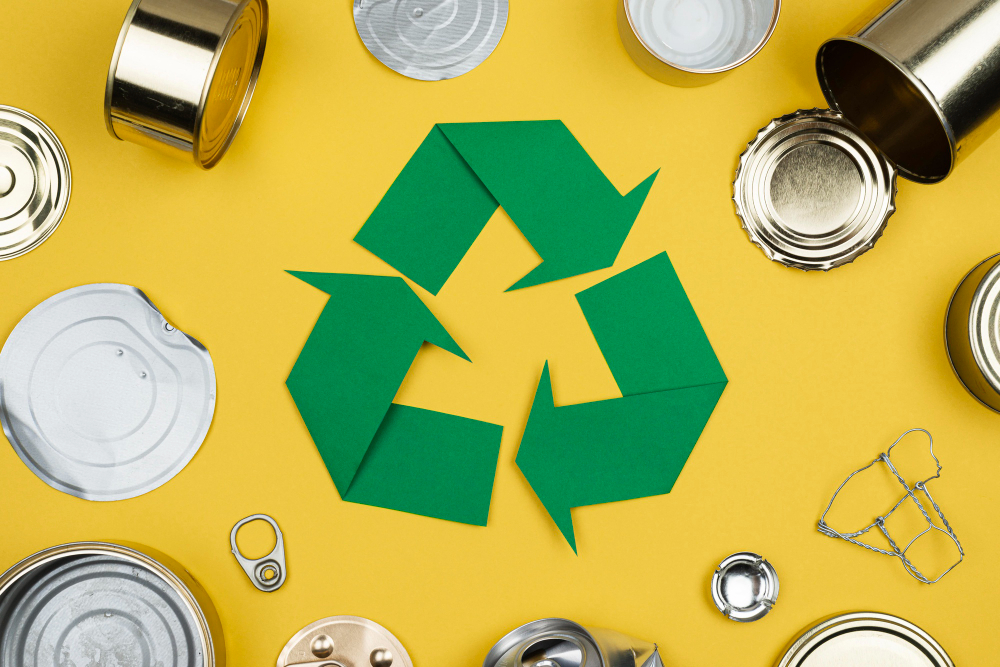
The environmental toll of landfills is an insidious one. Our garbage doesn't simply vanish into thin air. It ends up in these immense, sprawling testaments to waste, and with it brings a myriad of problems that affect us from local to global scales. In this in-depth exploration, we'll lay bare the harsh realities of landfill use, delivering a nuanced understanding of the environmental catastrophe they represent. We'll then pivot to potential solutions, with a particular focus on the pivotal role recycling centers can play.
Landfills have been the go-to solution for waste management for years, a necessary evil of our modern, consumption-driven society. They are the final resting place for a wide array of materials, including items that could have been reused, recycled, or composted. As global urbanization and consumerism swell, landfills are reaching their capacity limits at an alarming rate.
The problem is compounded by what's inside them. Landfills don't just take up space; they contribute massively to pollution and the emission of greenhouse gases. The decomposition of organic materials in landfills produces methane, a gas with a warming potential 25 times higher than carbon dioxide. Leachate — the toxic soup of chemicals that results from waste breakdown — can seep into the ground, contaminating soil and waterways.
Even if we discount the unsightly nature of landfills, there's a depth to their impact that's invisible to the casual observer. The collection, transportation, and management of waste require vast amounts of energy and resources. These processes, often glossed over, are significant contributors to our carbon footprint, not to mention the traffic congestion and noise pollution around landfill sites. The environmental stress extends to ecosystems near landfills and, sadly, the human populations residing nearby.
Furthermore, the hazardous waste that some landfills accept introduces dangers of contamination during natural disasters, such as floods or earthquakes. When those landfills breach, they unleash a whole new set of problems into the environment, showcasing the complexities and potential hazards of our waste management system.
Recycling pops up in conversation as the natural solution to our landfill woes, and for a good reason. Recycling diverts waste from landfills, reduces the need for new raw materials, conserves energy, and minimizes pollution. It's a holistic approach that presents a stark contrast to the one-and-done method of landfill usage. Recycling centers stand as the bridge from consumption to sustainability, offering services that ensure waste is processed, repurposed, and reused to its fullest extent.
Recycling centers, especially those that offer comprehensive services, become the heart of a circular economy. Materials are sorted, processed, and often returned to the market, closing the loop on production and consumption. By engaging with a recycling center, individuals, businesses, and municipalities can actively contribute to a cleaner future, claiming a stake in the environmental movement.
It's not just the capacity of landfills that recycling helps. Those plastic bottles, paper, and metals contribute to the reduction of greenhouse gases when they are recycled instead of being buried or incinerated. The energy savings are substantial — recycling paper uses 60% less energy than making it from raw materials, while the equivalent stat for aluminum is a staggering 95%.
The positives extend to land use as well. According to the Environmental Protection Agency, every ton of paper recycled saves more than three cubic yards of landfill space. For a planet with finite resources and an escalating waste problem, that's space that could be preserved for the truly non-recyclable, hazardous materials that demand containment.
Individuals hold the power to effect change through their choices. A commitment to recycling and engaging with recycling centers can set a precedent for a more sustainable lifestyle. It's about setting a mindset of conservation, where every tote of groceries, every box of office supplies, every bag of trash is seen through the lens of its environmental impact.
While personal efforts matter, systemic change is the underpinning requirement. From policy that incentivizes recycling to infrastructure that supports it, the support of local, state, and federal bodies is crucial. Recycling centers themselves must adapt and innovate, providing convenient and efficient services that make recycling a no-brainer for the average person.
In the Garden State, the recycling industry is positioned to make a significant impact. The dense population, paired with a growing interest in sustainability, sets the stage for a robust approach to waste reduction. Yet, challenges exist, from infrastructure gaps to educating the public on the benefits and methods of recycling.
All County Recycling is one such player in New Jersey's waste management scene, offering tailored recycling services for businesses and municipalities. By partnering with organizations such as this, New Jersey residents can do their part to move the state towards a greener, cleaner future.
For consumers, the path to a more eco-friendly lifestyle begins with education. Understanding the importance of recycling and the items that can be recycled is key. Simple actions, such as investing in a home recycling bin or choosing products with less packaging, can add up to significant changes over time.
Businesses have a unique opportunity to lead by example. From implementing office-wide recycling programs to choosing suppliers with strong environmental practices, the corporate world can drive large-scale change. All County Recycling provides consultancy services to businesses looking to enhance their sustainability footprint, guiding them through the complexities of waste management.
The toll of landfills on the environment is no longer tenable. Their continued use represents a disregard for the planet's well-being and a squandering of valuable resources. Recycling stands as a beacon of environmental stewardship, a beacon that can dim the looming specter of landfills if we choose to heed its call.
Engaging with recycling centers is a step towards a future where waste is no longer a burden but a resource. It's a future where the environment leads, and we follow, ensuring a legacy of sustainability for generations to come. If you're seeking for recycling service in New Jersey, consider reaching out to All County Recycling to kickstart your recycling efforts today.